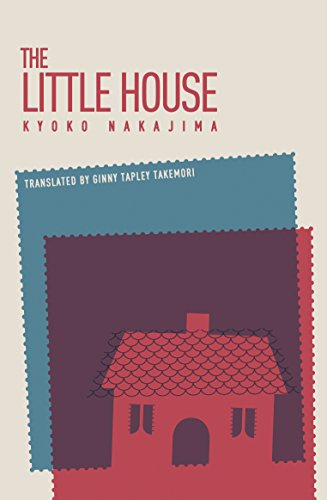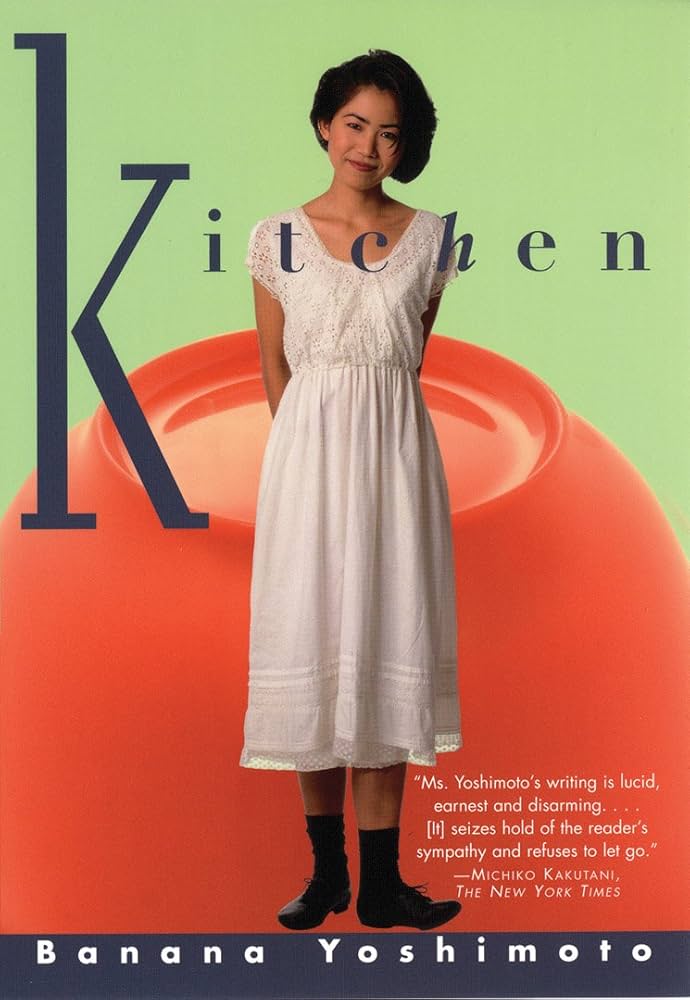This is a small collection of books about Japan with a focus on contemporary Japanese authors. They offer deep insights into modern Japan’s society and culture.
They reflect topics such as identity, social pressure, gender roles, isolation, and the clash between tradition and modernity.
Convenience Store Woman by Sayaka Murata
The novel tells the story of Keiko, a 36-year-old woman who tries to conform to social norms by copying what others do and following the rules imposed by society. She has been working in a convenience store for many years, where she finds her own world in the regularity of shifts and the predictability of daily life.
However, her family urges her to lead a life more in line with social expectations. According to tradition, she should get married and have a full-time job. When Keiko meets Shiraha, a cynical and bitter young man also pressured to fit into society’s conventions, things might change.
The book is written in a direct style, sometimes sharp and funny, and reflects on what it means to be normal in today’s Japanese society as well as to conform without losing one’s identity.


Butter by Asako Yuzuki
It follows Rika, a journalist working at a male-dominated magazine. Overworked and undervalued, she becomes obsessed with Manako Kajii, a gourmet chef accused of seducing and murdering wealthy men after cooking for them. Though Manako refuses interviews, she agrees to meet Rika after receiving a letter asking for a beef stew recipe.
Their prison meetings evolve into cooking lessons, during which Rika begins to change, finding unexpected pleasure and power through food. As she grows closer to Manako, she begins to question the societal expectations placed on women in Japan.
Inspired by a real-life case, Butter is a thought-provoking novel about misogyny, obsession, and the liberating power of food, exploring what happens when women stop living to please men.
The Little House by Kyoko Nakajima
Winner of the Naoki Prize, the book is a poignant novel narrated by Taki, an elderly woman recounting her youth as a maid for the Hirai family in suburban Tokyo during the early Shōwa period.
She forms a deep and lasting friendship with Tokiko, the lady of the house, whose domestic life becomes central to Taki’s memories. As the household’s confidante, Taki uncovers and safeguards its secrets, particularly during the turbulent years leading up to and during World War II.
The story ends abruptly after the war, when Taki returns to find the house destroyed in the American firebombing. Though she promises to continue her account, she never does, likely because Tokiko is no longer part of the story. A final perspective is offered by Taki’s great-grand-nephew, Takeshi, who doubts her version of events.
Though seemingly quiet and domestic, the novel delicately layers personal memory with historical trauma. Kyoko Nakajima’s sensitive portrayal of war’s impact on ordinary lives offers a rare and intimate insight into pre- and post-war Japan.


The Housekeeper and the Professor by Yōko Ogawa
A housekeeper is sent to care for a brilliant former mathematician who suffers from a condition that limits his memory to just 80 minutes. Initially frustrated by his obsession with numbers and lack of interest in anything else, she soon sees a different side of him when he insists that her young son, Root, come to his home after school rather than stay alone.
The Professor, who nicknames the boy after the square root symbol, forms an unexpected and touching bond with both the housekeeper and her son. Together, they establish a gentle routine centred around mathematics, gradually transforming their lives. Despite his memory loss, the Professor’s kindness, intellectual passion, and quiet dignity become a source of warmth and connection, turning a simple arrangement into a deeply meaningful, unconventional family.
The novel challenges the Japanese post-war ideal of normal life, which equates happiness with a traditional nuclear family. Through the portrayal of an unconventional family, the novel subverts cultural expectations by showing that love, fulfilment, and domestic harmony can exist outside traditional structures.
Kitchen by Banana Yoshimoto
Mikage Sakurai is a young woman who feels lost after her grandmother dies, the last person she had in her life. She finds comfort in the kitchen, which has always been a special place for her, even though she has stopped eating for a while. One day, a kind classmate and his mother invite Mikage to stay with them. Their warm and peaceful home, especially the kitchen, helps her slowly start eating and living again. For Mikage, the kitchen is more than just a place to cook, it’s a symbol of life and connection.
The author, Banana Yoshimoto, explores important themes like loneliness, food, identity, and death. She tells the story in a calm, gentle, and emotional way that makes it feel both sad and beautiful.

Intrigued by Japan? I would recommend that you read a detailed recount of Claudia’s trip in Expatclic.
Are there any books about Japan that you loved and we can add to our next post? Let us know.
Alessandra Giacchi
Head photo by Nick Wood on Unsplash


